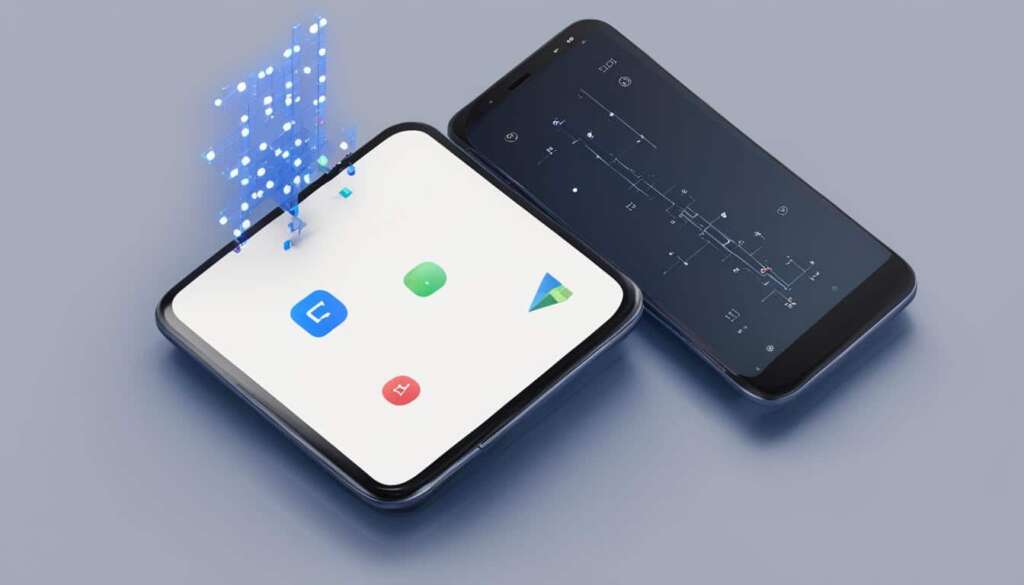Table of Contents
If you own an Android device, you may have heard of the SMSC number, but might not know what it means or how it affects your text messaging. The SMSC number plays a significant role in ensuring seamless SMS communication on Android devices. In this section, we will explore what an SMSC number is and its importance on Android phones.
Key Takeaways:
- The SMSC number is crucial for SMS communication on Android devices
- Understanding the role of the SMSC number can help optimize your texting experience
- An SMSC number is a unique code responsible for directing text messages
- The operations of managing delivery and receipt notifications largely rely on the SMSC number
- Proper configuration of your SMSC number is necessary for an efficient and reliable messaging system
What is an SMSC Number?
An SMSC number, short for Short Message Service Centre number, is a unique identifier that enables text messages to be routed to the correct recipient. It acts as a liaison between the sender and receiver, ensuring messages are transmitted accurately and efficiently.
The SMSC number has a crucial role in SMS communication, and it functions differently depending on the network and device used. On Android devices, the SMSC number is stored in the device settings and automatically assigned by the network operator.
Understanding the definition of an SMSC number is essential to appreciate its impact on SMS communication and how it helps facilitate seamless texting on Android devices.
“An SMSC number is a unique identifier that enables accurate and efficient routing of text messages.”
How Does the SMSC Number Influence SMS Communication on Android?
Understanding the role of the SMSC number on Android devices is critical to ensuring seamless SMS communication. The SMSC number plays a crucial role in routing text messages between devices, managing delivery and receipt notifications, and maintaining a reliable messaging system.
When a user sends a text message on their Android device, the message is first sent to the SMSC number, which is essentially a network server that directs the message to its intended recipient. The SMSC number is responsible for ensuring that the message is delivered to the recipient’s device in a timely and reliable manner.
Moreover, the SMSC number can also manage the delivery and receipt notifications of the text messages. Users can customize the notification settings for their messaging app based on their preferences. They can select whether they want to receive delivery and receipt notifications for every message or only for certain conversations.
Overall, the SMSC number has a significant impact on SMS communication on Android devices. By understanding its role, users can optimize their texting experience and ensure seamless communication with their contacts.
Conclusion
As we conclude, understanding the significance of the SMSC number on Android devices for seamless text messaging is crucial. The SMSC number plays a critical role in routing text messages, managing delivery and receipt notifications, and maintaining a reliable messaging system. By comprehending how the SMSC number influences SMS communication, Android users can optimize their texting experience and ensure efficient and reliable text messaging on their devices.
In summary, Android users must keep their SMSC number up to date and accurate to avoid any text messaging issues arising from the wrong routing of messages or delivery and receipt notifications. With this essential information about the SMSC number, Android users can create a better messaging experience for themselves.
So, this was all about the SMSC Number on Android devices, its importance in SMS communication, and how it influences text messaging. We hope that this article has provided you with valuable insights and has helped you understand the role that the SMSC number plays in ensuring seamless communication via text messaging on your Android devices.
FAQ
What is an SMSC number?
An SMSC number refers to the Short Message Service Center number. It is a unique identifier that acts as a gateway for text messages to be sent and received on Android devices. The SMSC number plays a crucial role in routing messages and ensuring their successful delivery.
How does the SMSC number influence SMS communication on Android?
The SMSC number has a direct impact on SMS communication on Android devices. It is responsible for routing text messages to their intended recipients, managing delivery and receipt notifications, and maintaining an efficient messaging system. The correct configuration of the SMSC number is essential for seamless and reliable text messaging on Android devices.
Why is understanding the SMSC number important for Android users?
Understanding the SMSC number is crucial for Android users as it enables them to optimize their text messaging experience. By knowing how the SMSC number influences SMS communication, users can ensure that their messages are delivered successfully and receive timely notifications. It empowers users to troubleshoot any issues related to text messaging and maintain a reliable connection.


